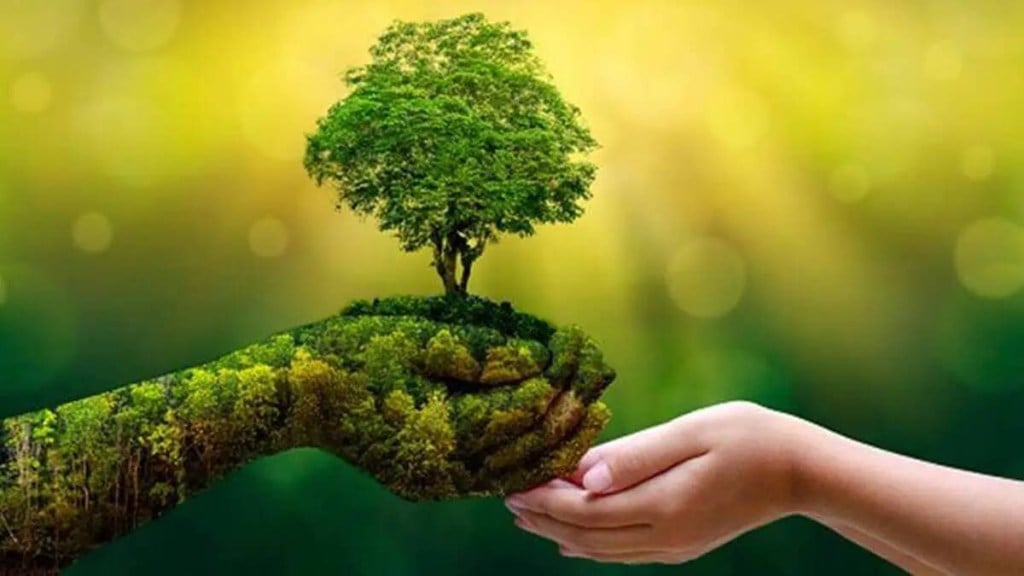By Mohd Shadab Danish, Javeria Maryam & Badri Narayan Gopalkrishnan
As the world continues to grapple with climate change, it has become increasingly clear that developing countries must embrace green technology to ensure a sustainable future. The adoption of green technology and renewable energy solutions is essential for developing countries to achieve sustainable development and address the challenges of climate change. The private sector, policymakers, and international organizations must work together to support developing countries in acquiring the tools and skills necessary for a green future.
India, along with other developing countries like the Philippines, Turkey, and Vietnam, has made significant progress in innovation capabilities, as shown by their ranking in the Global Innovation Index. However, the manufacturing sector in India faces two significant challenges. First, entrepreneurs and innovators tend to follow the service-based business model of Silicon Valley, making it difficult to translate innovation into high-quality products. Second, Indian manufacturing is not sustainable or inventory-based, relying on low-cost labor or low-tech automation to offset high capital costs.
The government of India has launched programmes like “Make in India” and “Net-zero carbon emissions” to protect the environment. In an effort to strike a balance between economic growth, sustainability, and social inclusion, the government also provides assistance to small and medium-sized businesses in their efforts to enhance their products and processes while reducing their environmental impact. In spite of these initiatives, India’s manufacturing sector has not developed to the point where it significantly contributes to the global manufacturing industry.
The G20 summit in India offers developing nations a global platform. To combat climate change and boost economic growth, the summit should priorities green technology development and funding. Failure to do so will widen the gap between developed and developing countries, with dire consequences. To seize this opportunity and grow their economies while addressing climate change, developing nations must act now. They can rapidly advance and compete globally in green innovation, such as robotics and energy efficiency, and diversify away from commodity reliance for economic growth and value.
Further, the Indian government and private sector must work together to fund demonstration projects, build capabilities, and align national policies and trade regimes to facilitate the adoption of new technologies. This will not only address the challenges of climate change but also promote economic growth and social equity.
To acknowledge sustainable innovation, the International Patent Classification (IPC) union compiled a green inventory; the World Intellectual Property Organisation (WIPO) connects providers and seekers of environmentally friendly technology through the WIPO GREEN network to combat climate change. Investors, motivated by both financial and moral considerations, may be drawn to businesses that specialise in environmentally friendly technologies as the popularity of these technologies grows. The current state of green technology in India is interesting to observe based on WIPO patent database.
Biofuels: Biofuels, including ethanol and biodiesel, can meet transportation fuel demand. India is actively supporting research and development in biofuel technology and has a new biofuel policy aiming to blend 20% ethanol in gasoline and 5% biodiesel in diesel by 2030. However, India lags behind other countries in patents for Integrated Gasification Combined Cycle (IGCC) technology.
Fuel cells: Fuel cells produce clean and efficient electricity using hydrogen or other fuels, with only water, heat, and electricity as by-products. There are over 62,178 global patents, with 151 patents filed in India since 2014, but most are owned by foreign entities. More collaboration is needed between private companies, universities, and research institutions to boost innovation.
Harnessing Energy from Manmade Waste: The amount of municipal solid waste generated by Indian cities is expected to rise from 114,576 tonnes per day in 1996 to 440,460 tonnes per day by 2026. ICAR has supported the development of agriculture waste management technologies, resulting in 365 patents published by the Indian Patent Office out of 31,677 patents worldwide. However, only 24 patents related to industrial waste management have been published by the IPO, and few Indian companies have been listed in the top ten of the IPO’s patents since 2014 in this technology category. The G20 summit in India should address the issue of waste reduction and preservation of the environment.
Wind and solar energy: The depletion of non-renewable sources and the associated high costs and environmental damage have pushed the world towards renewable energy sources. Developed countries lead the way in technological innovations for renewable energy, with wind energy being the most patented technology. However, India still lags behind in renewable energy innovation and technology. To bridge this gap, collaboration with G20 members is needed to establish an innovation network and make India energy independent.
Globally, the number of patents filed in wind energy and solar energy stands at around 2 lakh and 50,000 respectively. In contrast, Indian innovators have filed only around 900 patents in wind energy and 200 patents in solar energy since 2014. This suggests that India needs to accelerate its efforts in renewable energy innovation and technology to catch up with the rest of the world.
Sustainable development and climate change mitigation require developing countries to adopt green technology and renewable energy. Green technology development and funding can help developing nations achieve sustainable economic growth at the G20 summit in India. This dialogue can help India implement its green innovation agenda and promote economic growth while addressing climate change. The private sector, policymakers, and international organisations must collaborate to help developing countries acquire green technology and skills. Thus, we can create a fairer and more sustainable world.
Mohd Shadab Danish is Assistant Professor Economics and Public Policy, IIM Raipur, Javeria Maryam is Senior Project Consultant at EY India & Badri Narayan Gopalkrishnan is Fellow and Former Head, Trade and Commerce, NITI Ayog India
Views are personal.

